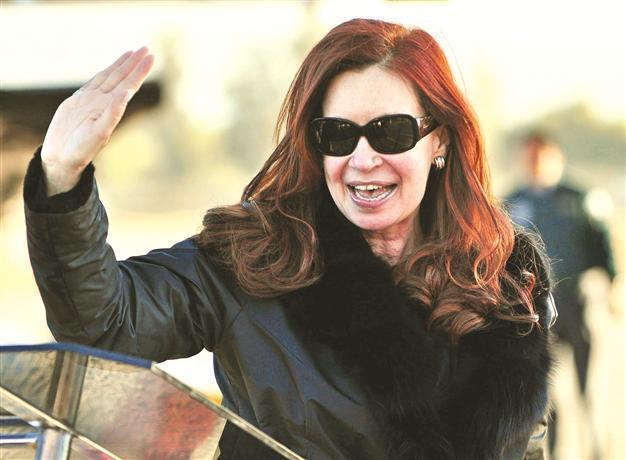Argentina tightens currency controls
BUENOS AIRES - The Associated Press

Argentina’s President Cristina Kircher slaps controls on the currency market. AFP photo
Despite criticism from business circles, Argentine authorities are pressing ahead with their policy of tightening currency controls to stem capital flight and protect foreign exchange reserves.Argentina’s reserves shrank nearly $6 billion to $46.6 billion in a matter of months, prompting President Cristina Kirchner’s government to slap tight controls on the currency market by limiting dollar purchases.
The fight against the dollarization of the economy--all major transactions as well as savings are in dollars--led to the severe restrictions for banks, companies and small savers seeking to cope with inflation, which stands at 25 percent, according to independent analysts, but just 10 per cent, according to the government.
These measures have put a damper on real estate transactions and construction, thee economy’s two key and this deepens the path to recession, said Mariano Lamothe, of private consulting firm acebeb.com.
Authorities have just banned real estate transactions in dollars as well as acquisition of dollars for saving purposes. Earlier dollar purchases for foreign travel were also tightly controlled.
South America’s second largest economy must meet two key payments in the second half of 2012: a $2.4 billion Boden bond payment in August and $3 billion in December to the holders of GDP warrants.
It has implemented drastic measures to control foreign exchange operations since the end of 2011, in a bid to preserve its monetary reserves slated to repay the country’s debt.
The nation must still repay $6.5 billion to its public creditors from the Paris Club, an informal grouping of financial officials from international economic powers dealing specifically in debt relief and restructuring.
Argentina has already paid off 95 percent of its private debt--around $100 billion with interest--in 2001, when the country declared the biggest debt default in history. Much of the remaining seven percent is in the hands of hedge funds that have launched legal proceedings.
















